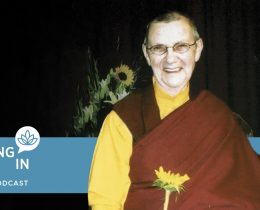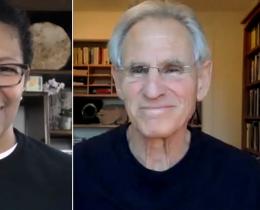Omega: What instrument would you still like to learn how to play?
Jimmie: I would love to play the piano. I always regret that I didn’t learn the piano. I also would like to play the electric guitar.
Omega: Do you match your music to your mood or can music dictate a mood?
Jimmie: It’s hard to say. It depends on if you’re talking in terms of writing or performing. For writing, it doesn’t have much to do with the mood of the immediate moment because it’s usually a slow process. With performing, I very much try to sense it. I’ll go into a performance generally with a set list, but sort of sense the way the audience is going, sense whether it’s a more thoughtful listening crowd or if it’s a crowd that's ready for excitement, you know, up tempo. It’s not something that you can really know ahead of time.
Omega: How is songwriting a tool for self-discovery?
Jimmie: I think any form of writing can be a tool for self-discovery. With songwriting, half of it is poetry. It can also be very akin to journaling. And since journaling and poetry are both tools that some people use for their own personal discovery, then writing music definitely can have those aspects to it. Some people can do it sort of frivolously and without very much thought or investment, and still come up with really good songs. Many times, you just come up on little thought patterns and things, and you make associations that you might not have made otherwise. But for some people of a certain temperament, and I’ve always been of that temperament, the self-discovery part ends up being in my music, too.
Omega: What is the most challenging part of songwriting for you?
Jimmie: I’m essentially lazy [laughs],so it’s the finishing of a song. The ideas flow naturally to me, but when it comes to the actual sitting down and putting it into form, that’s like homework. But you have to do that. In a way, one of the most rewarding parts is also the most challenging. It really has the most return in it.
Omega: One of your albums is called Heirloom Music. Can you talk about what that title means to you and your own musical inheritance?
Jimmie: The title came from Warren Hellman, who I did the record with. The idea was kind of like forgotten treasures, you know, songs that have been handed down—a lot of them had been mostly forgotten by the general public. But they’re still there. They’re still part of the music heritage that was the backdrop to the popular music that we have now. I thought that title was particularly apropos for the music we did. It was really old-timey music that happened to be the kind of music that Warren shared.
Growing up, I was at the perfect age to be really deeply influenced by the folk music movement of the late 1950s and 1960s and I was very much into country music because I was raised in Texas, but also rock-and-roll. I loved rock-and-roll. But when I discovered folk music, that’s where the historical part of it started to interest me so much. The popular music had come from, in a sense, the Appalachian music and mixed with the blues, and it's what created country music and then rock-and-roll. It was interesting when I started hearing the connections between the really old music and the music that I already was familiar with.




